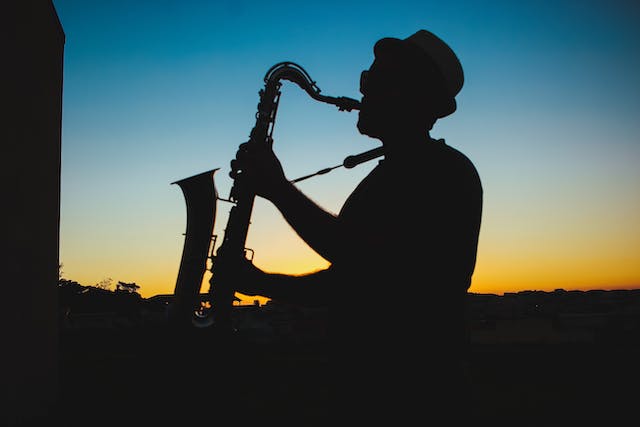In the heart of blues music lies an intangible yet deeply felt connection to the spiritual realm. From the soulful wails of a harmonica to the fervent pleas of a vocalist, the blues has an innate ability to tap into the spiritual core of both the artist and the listener. In this exploration, we delve into the profound relationship between blues and spirituality, unraveling the threads that weave together the earthly and the divine within the soulful sounds of this timeless genre.
Article Sponsor: Parking Lot Striping Myrtle Beach

The Gospel Roots of Blues:
To understand the spiritual underpinnings of blues, one must trace its roots back to the gospel music of the African American church. In the crucible of the Deep South, where the blues took its formative steps, gospel hymns and spirituals were the musical bedrock of the community. The call-and-response patterns, emotional fervor, and communal singing in these spiritual gatherings would become integral elements carried over into the blues.
Testifying through the Blues:
The blues, in many ways, serves as a secular testimony—a musical expression of the trials and tribulations faced by individuals in their earthly journey. As blues artists pour their hearts into their craft, they testify to the struggles of life, love, and loss. Songs become narratives of personal odysseys, each note carrying the weight of experience and emotion, akin to the spiritual testimonies found in religious congregations.
The Crossroads: Myth and Metaphor:
The concept of the crossroads, deeply embedded in blues mythology, serves as a potent metaphor for the intersection of the earthly and the spiritual. Legend has it that bluesman Robert Johnson made a Faustian bargain at the crossroads, exchanging his soul for extraordinary musical talent. While rooted in folklore, the crossroads symbolize the choices and challenges faced by individuals, echoing the existential struggles found in spiritual narratives.

Spiritual Themes in Blues Lyrics:
The lyrical content of blues songs often mirrors spiritual themes, offering a glimpse into the spiritual landscape of the artists. From the soul-searching lyrics of Muddy Waters to the redemptive narratives of Mahalia Jackson, the blues becomes a canvas for exploring themes of sin, redemption, and the eternal quest for meaning. In this lyrical exploration, the blues becomes a vessel for artists to grapple with their spirituality and share it with the world.
Sacred Instruments in Blues:
Certain instruments in blues music carry a sacred resonance, transcending their physical form to become conduits of spiritual expression. The wailing notes of a slide guitar, the mournful cry of a harmonica, and the rhythmic pulse of drums create a sonic tapestry that speaks to the soul. In the hands of a blues artist, these instruments become vessels through which the spiritual dimensions of the music are channeled.
Blues Rituals: Live Performances as Ceremonies:
Blues performances, whether in smoky juke joints or on grand stages, take on a ritualistic quality. The call-and-response between the artist and the audience, the communal energy that permeates the space, and the shared emotional journey all contribute to the sense of a musical ceremony. In these moments, the boundaries between the earthly and the spiritual blur, and the blues become a shared spiritual experience.
Spiritual Evolution of Blues:
As the blues genre has evolved over the decades, so too has its spiritual dimension. The blues-rock movement of the 1960s, spearheaded by artists like Eric Clapton and Jimi Hendrix, infused the genre with a new energy while maintaining its connection to the spiritual roots. Contemporary blues artists continue to explore spiritual themes, offering fresh perspectives on the timeless interplay between the earthly and the divine.
Blues and Liberation:
The blues, like spirituals before it, has served as a vehicle for liberation and empowerment. In the face of societal oppression and racial injustice, blues musicians have used their art to assert their humanity and demand equality. Songs like “A Change Is Gonna Come” by Sam Cooke and “Strange Fruit” by Billie Holiday stand as powerful examples of the blues as a force for social and spiritual liberation.
The Blues Church: Communal Worship Through Music:
Blues festivals, gatherings, and intimate club performances often take on a communal worship-like atmosphere. In these settings, individuals from diverse backgrounds come together to share in the spiritual experience of the blues. The shared love for the music becomes a unifying force, fostering a sense of community and collective spiritual connection that transcends individual differences.
Blues as a Spiritual Odyssey:
In essence, the blues becomes a spiritual odyssey—an exploration of the human condition, the quest for meaning, and the expression of the soul’s deepest yearnings. Whether in the mournful notes of a delta blues ballad or the electrifying energy of an uptempo Chicago blues track, the genre invites listeners on a spiritual journey that resonates with the shared experiences of humanity.
The spiritual connection embedded within blues music transcends mere entertainment; it becomes a conduit for the sacred and the secular to converge.
Thank you for visiting our blog. If you have any comments or questions please reach out to us today. We also ask that you visit our sponsor Myrtle Beach Parking Lot Striping.